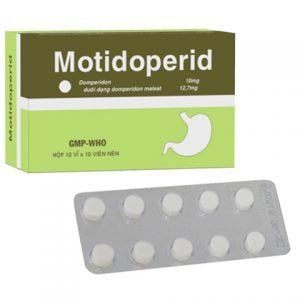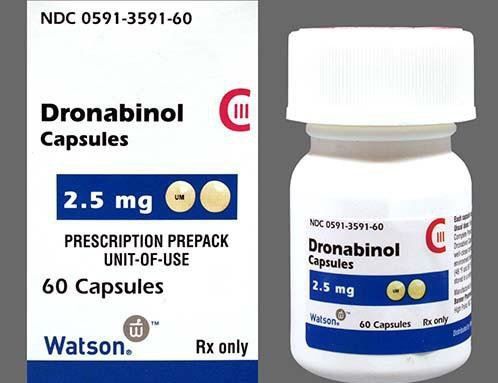This is an automatically translated article.
Primperan is used in the symptomatic treatment of nausea and vomiting. The following is information about Primperan antiemetic that users should know before using.1. Uses of the antiemetic drug Primperan
Primperan antiemetic drug is prepared in the form of easy-to-break tablets and solution for intramuscular and intravenous injection with packing specifications and contents:
Packing box of 40 easy-to-break tablets of 10mg; Primperan antiemetic drug intramuscular, intravenous with 10mg/2ml, 2ml ampoules and 12 ampoules. Primperan antiemetic drug whose main ingredient is Métoclopramide hydrochloride anhydrous 10mg is used in the symptomatic treatment of nausea and vomiting due to acute migraine or prevention of vomiting and nausea caused by chemotherapy and radiotherapy.
So who is Primperan antiemetic drug used for?
Primperan antiemetic is indicated for use in the following cases:
For adults:
Feeling nauseous and vomiting, including nausea and vomiting due to acute migraine; Used to prevent the late onset of symptoms of nausea and vomiting after chemotherapy; Used to prevent nausea and vomiting after radiation therapy. For children:
Primperan antiemetic is indicated for children 15 - 18 years old and weighing over 60kg; Drugs are second-line options for the prevention of late-onset nausea and vomiting associated with chemotherapy.
2, Dosage and how to use Primperan antiemetic drug
Usage: Primperan antiemetic drug is taken orally.
Dosage:
For adults: Use for all indications Usual dose: 10mg/tablet/time, use up to 3 times/day; Maximum dose used: 30mg/day or 0.5mg/kg/day; The maximum duration of treatment is 5 days. For children from 12-18 years old, weighing over 60kg: Used in the prevention of nausea and vomiting that appear late due to chemotherapy: Usual dose: 10mg/tablet/time, use up to 3 times/day or 0.1 - 0.15mg/kg/time, use up to 3 times/day; Maximum dose used: 30mg/day or 0.5mg/kg/day; The maximum duration of treatment is 5 days. For special groups: Elderly group: It is necessary to consider reducing the dose each time after assessing liver - kidney function and physical condition; Patients with renal impairment: The dose should be reduced by 75% for patients with end-stage renal failure with creatinine clearance <15mL/min. For patients with severe or moderate renal impairment with a creatinine clearance of 15-60mL/min, the dose should be reduced by 50%; Hepatic impairment: The dose should be reduced to 50% in patients with severe hepatic impairment. For the group of children: Children under 15 years old and weighing less than 60kg should not use Primperan because the dosage form is not suitable. The above doses are listed for reference only. For a specific dose, it is necessary to consult a doctor or medical staff because the dose depends on the condition and the progress of the disease.
3.Contraindications to using Primperan antiemetic drug
Antiemetic drugs are contraindicated for use in the following cases:
Patients with hypersensitivity to metoclopramide or any component of the drug; The patient is experiencing gastrointestinal bleeding, mechanical obstruction or perforation of the gastrointestinal tract. Do not take Primperan because it increases bowel movements and can make the condition worse; Patients with pheochromocytoma or suspected pheochromocytoma. Taking medications that increase the risk of hypertensive crises; Patients with a history of metoclopramide or sedation disorders; Patients with epilepsy; Patients with Parkinson's disease; Patients receiving concomitant therapy with levodopa or dopamine agonists; Patients with a history of methemoglobinemia due to metoclopramide or NADH cytochrome b5 reductase deficiency; Because of the increased risk of extrapyramidal disorders, it should not be used in children under 1 year of age.
4. Primperan side effects
During the use of Primperan antiemetic, patients may experience one or more of the following side effects:
Common side effects: Drowsiness, fatigue, dizziness, headache (less common) , difficulty falling asleep, diarrhea, feeling bloated, low blood pressure, profuse sweating, tendency to depression; Rarer side effects: Menstrual disturbances, breast enlargement (may produce breast milk) in case of long-term use of the drug; Causes muscle spasms in the face, jaw muscles, abnormal eye movements, choking, difficulty speaking, crooked neck or whole body spasms. The side effects of Primperan antiemetic drugs mentioned above may not be fully accounted for, patients may experience other side effects. In case the patient takes the drug and feels a lot of discomfort, it is advisable to inform the treating doctor about the situation so that he can guide the appropriate solution.
Because side effects are drowsiness, movement disorders, dystonia, and even vision problems, so do not drive or operate machinery after taking the drug.
Studies show that Primperan antiemetic drug when used does not cause teratogenicity or toxicity to the fetus, so it can be used during pregnancy in case of need. However, the use of the drug in late pregnancy may increase the risk of extrapyramidal syndrome in the baby. Avoid using the drug in the late stages of pregnancy, in case of need, the newborn should be closely monitored for manifestations. The active ingredient Metoclopramide in Primperan antiemetic drug is excreted in small amounts into breast milk, so nursing infants will be at risk for adverse drug reactions. Metoclopramide should not be used by women who are breastfeeding. If it is necessary to use the drug, it is necessary to carefully weigh the benefits of taking the drug and breast-feeding.
In summary, Primperan is used in the treatment of nausea and vomiting. The drug is taken orally at a dose based on the condition and the progression of the disease. Therefore, patients need to take the drug according to the instructions and prescriptions of the doctor/pharmacist.
Please dial HOTLINE for more information or register for an appointment HERE. Download MyVinmec app to make appointments faster and to manage your bookings easily.













